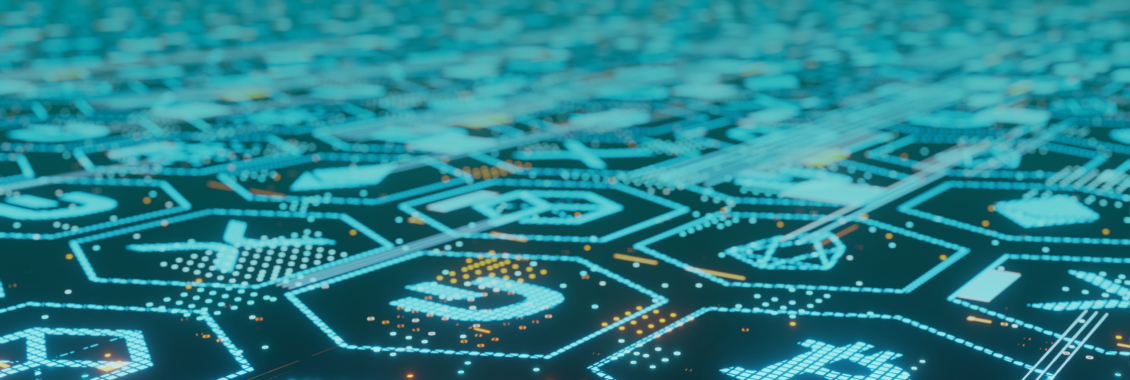Nobel Prize in Chemistry: AI Predicts Protein Structures
This year's Nobel Prize in Chemistry was awarded to three scientists: David Baker, Demis Hassabis, and John Jumper. However, there was another key contributor to their research – artificial intelligence. The scientists developed a special AI model to solve a problem unsolved for 50 years. Let's examine the history to understand the scale of their achievement.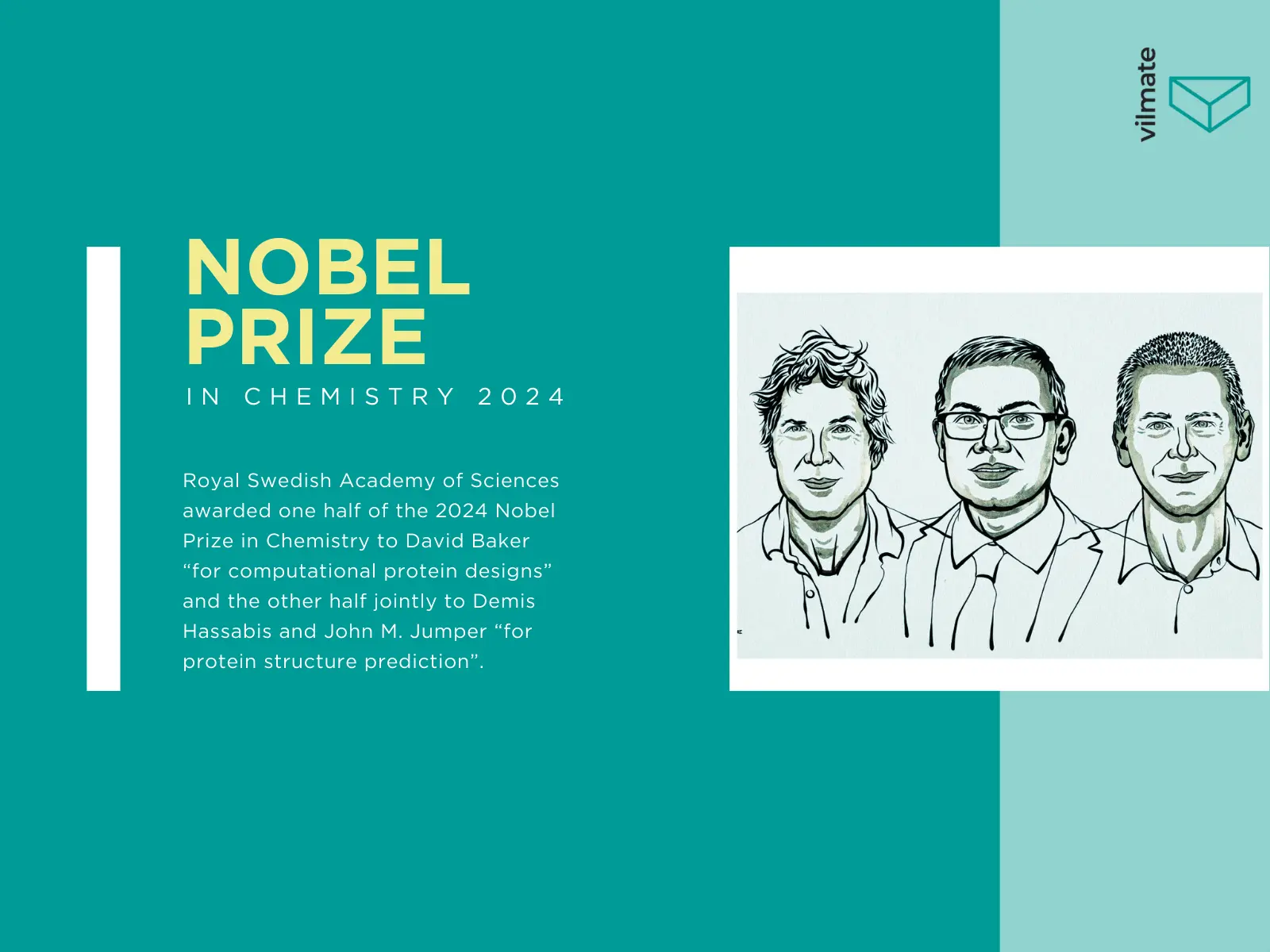 Proteins comprise about 20 amino acids linked in long chains. These chains fold into three-dimensional shapes that determine the protein's function. Since the 1970s, scientists have tried to predict a protein's structure based on its amino acid sequence, but the huge number of possible combinations made it an incredibly complex task. In 2003, David Baker created a completely new protein from amino acids, unlike any other. However, the challenge of predicting protein structures remained.
That's why Hassabis and Jumper developed the AI model AlphaFold2. Using artificial intelligence, they were able to predict the structure of nearly every known protein—around 200 million in total.
More than 2 million scientists from 190 countries have since used AlphaFold2 and Baker's breakthrough to create new proteins for use in medicines, nanomaterials, vaccines, and sensors. Researchers have also better understood antibiotic resistance and even created enzymes that can break down plastic.
None of these remarkable achievements would have been possible without artificial intelligence. This is why the next Nobel Prize belongs to some of the key pioneers in AI.
Proteins comprise about 20 amino acids linked in long chains. These chains fold into three-dimensional shapes that determine the protein's function. Since the 1970s, scientists have tried to predict a protein's structure based on its amino acid sequence, but the huge number of possible combinations made it an incredibly complex task. In 2003, David Baker created a completely new protein from amino acids, unlike any other. However, the challenge of predicting protein structures remained.
That's why Hassabis and Jumper developed the AI model AlphaFold2. Using artificial intelligence, they were able to predict the structure of nearly every known protein—around 200 million in total.
More than 2 million scientists from 190 countries have since used AlphaFold2 and Baker's breakthrough to create new proteins for use in medicines, nanomaterials, vaccines, and sensors. Researchers have also better understood antibiotic resistance and even created enzymes that can break down plastic.
None of these remarkable achievements would have been possible without artificial intelligence. This is why the next Nobel Prize belongs to some of the key pioneers in AI.
Nobel Prize in Physics: Machine Learning for Neural Networks
In 2024, John Hopfield and Geoffrey Hinton were awarded the Nobel Prize in Physics for their discoveries and inventions, which made machine learning in neural networks possible. Hopfield and Hinton's breakthroughs were essential to the development of artificial intelligence. Let's examine their work more closely. John Hopfield created associative memory for neural networks, which allows images in databases to be restored. His network could correct or complete a picture but couldn't associate it with similar objects.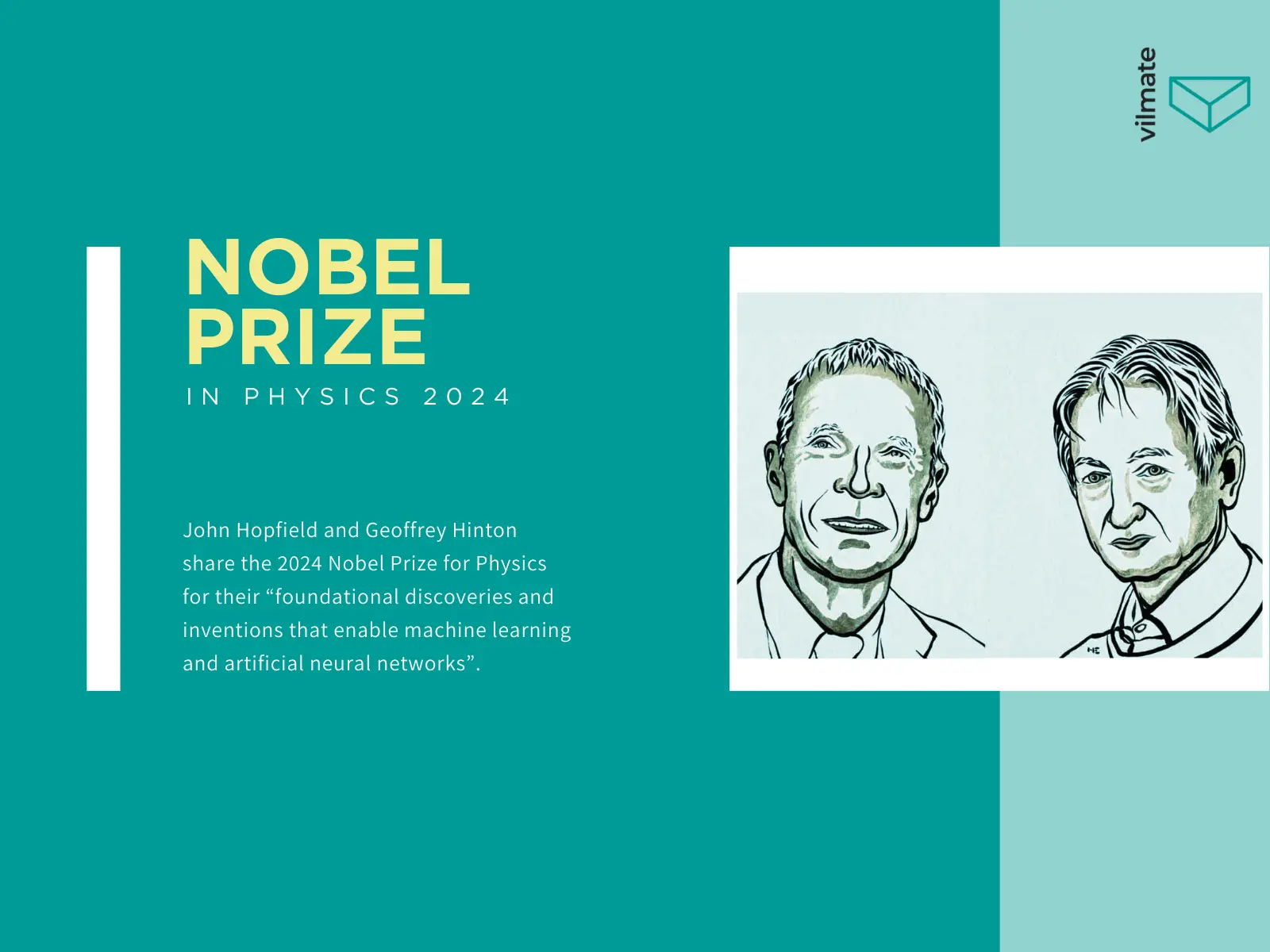 Geoffrey Hinton developed a method for identifying database features and recognizing image elements. He implemented this method using Hopfield's network. Their combined work led to the creation of the "Boltzmann Machine," a neural network that can learn from internal data, solve combinatorial problems, and recognize key features in specific data sets.
So, how does this invention connect to physics? Hinton used tools from statistical physics in his work on neural networks. Moreover, Ellen Moons, the Nobel Committee for Physics chair, noted that artificial neural networks are widely used in physics, including in the development of new materials.
Even with these points, the debate continues among scientists about which field this technology truly belongs to.
Geoffrey Hinton developed a method for identifying database features and recognizing image elements. He implemented this method using Hopfield's network. Their combined work led to the creation of the "Boltzmann Machine," a neural network that can learn from internal data, solve combinatorial problems, and recognize key features in specific data sets.
So, how does this invention connect to physics? Hinton used tools from statistical physics in his work on neural networks. Moreover, Ellen Moons, the Nobel Committee for Physics chair, noted that artificial neural networks are widely used in physics, including in the development of new materials.
Even with these points, the debate continues among scientists about which field this technology truly belongs to.
Which Scientific Field Does AI Belong To?
Jonathan Pritchard, an astrophysicist at Imperial College London, was among the first to question the Nobel Prize in Physics being awarded to AI. While he acknowledges the importance of artificial intelligence, he doubts whether it fits within the realms of physics or chemistry. David Vivancos, CEO of MindBigData.com, also shared his thoughts on AI receiving the prize."I am a big admirer of [Hinton and Hopfield], and they have created a marvelous discovery. But the thing is, it's not in the realm of physics unless we think that physics is everything," he said.Vivancos believes that if AI were placed within traditional sciences, it would be closer to mathematics. Given the concerns raised by several prominent voices, Virginia Dignum, a Umeå University professor, suggested it might be time to update the Nobel Prizes. She pointed out that many major discoveries now go beyond the traditional fields. She also noted that awarding AI in physics and chemistry shows the "triumph of interdisciplinarity" in technology.
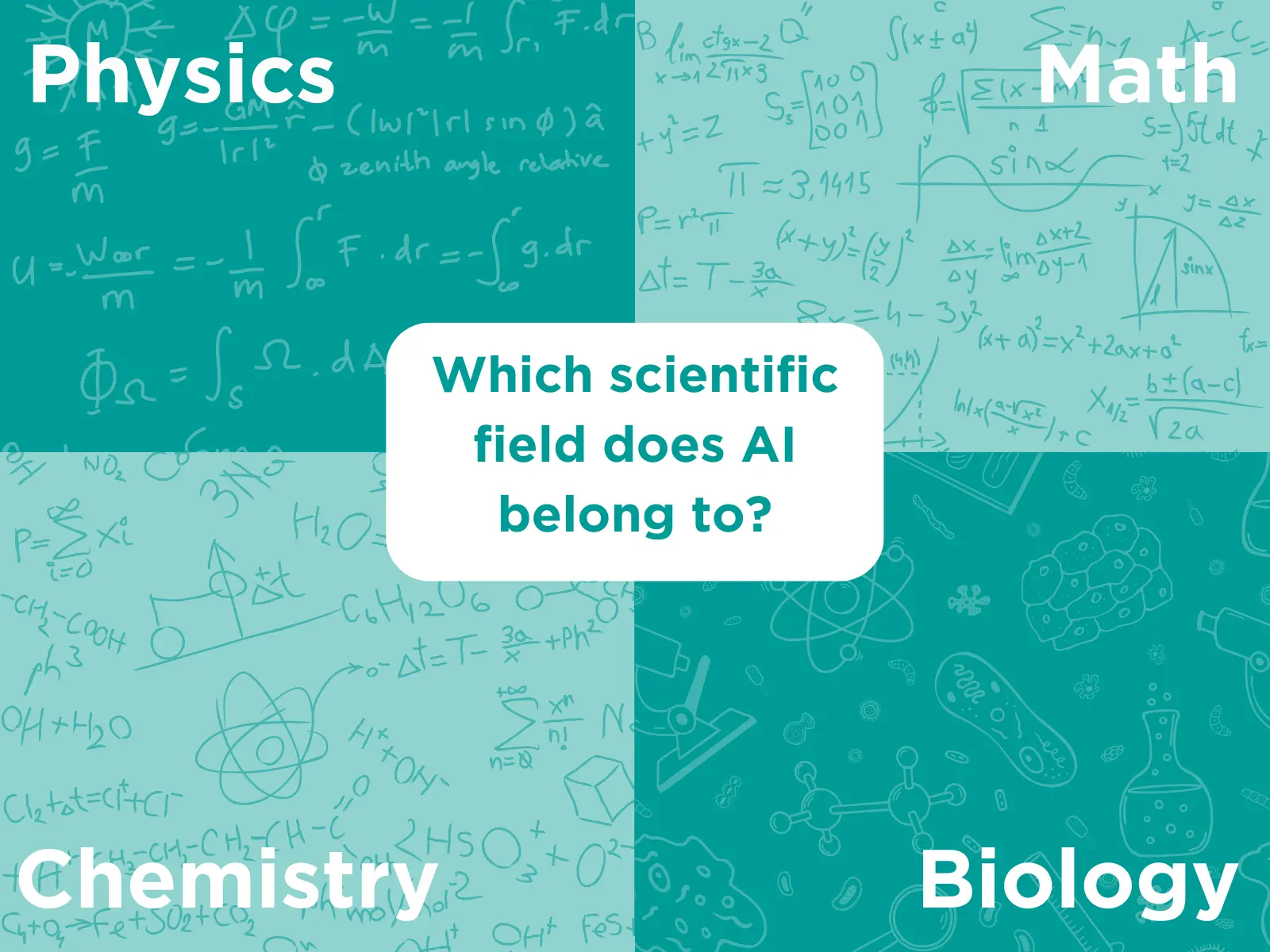
"The real breakthroughs in science are no longer the domain of a single discipline but require a broad perspective and the combination of different insights," she said.There's no denying that AI has become part of nearly every aspect of life. It's possible that, soon, most scientific discoveries will involve AI somehow. Now that we've covered the opinions of various scientists let's briefly examine what the Nobel laureates themselves think about AI.
Nobel Laureates on Artificial Intelligence: Should We Be Concerned?
Daron Acemoglu, the Nobel laureate who received the Prize in Economic Sciences in 2024, has shared his thoughts on AI's impact. He believes the hype surrounding this technology is excessive, and investors are likely to "waste a lot of money." Acemoglu predicts that, in the next ten years, no more than five percent of jobs will be managed by neural networks, which he thinks is too little to trigger a real economic revolution. However, Acemoglu recognizes that AI significantly impacts our lives, but he views it as harmful. He points out that corporations primarily exploit this technology, leading to problems such as inequality, stagnant wages, and privacy issues. Simon Johnson, who also received the Nobel Prize in Economic Sciences alongside Acemoglu, agrees with his colleague. In an interview with CBS News, he mentioned that people today tend to be either overly optimistic or overly pessimistic about artificial intelligence. Johnson believes that the middle class may be the group most negatively impacted by this technology. What do the "fathers of artificial intelligence" think about this? Geoffrey Hinton, awarded this year for his work, also shared his views on AI. He compared the technology to the Industrial Revolution, warning that we may soon face something smarter than ourselves for the first time.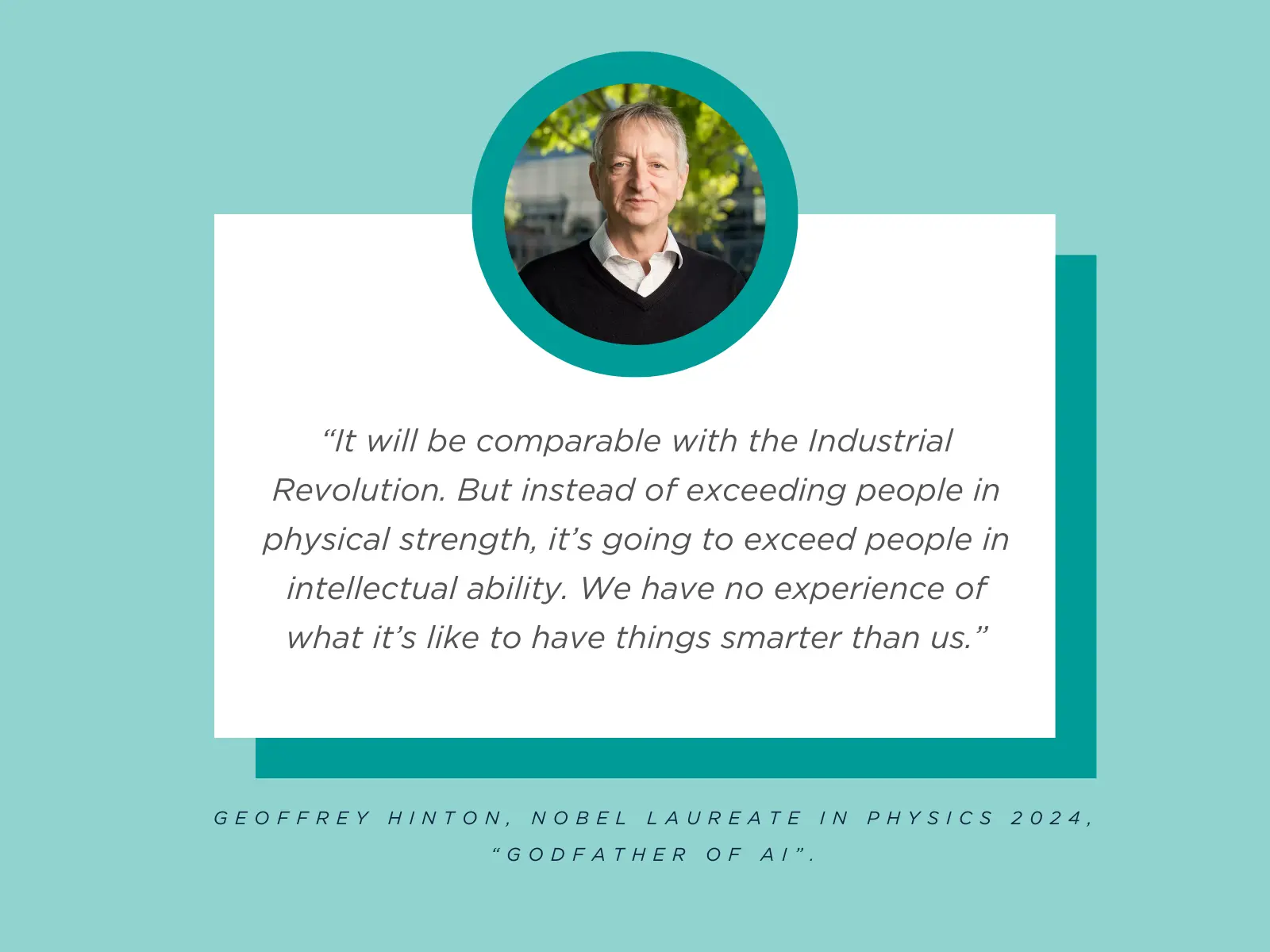 Hinton recognizes that AI could bring positive societal changes, particularly through new opportunities in scientific research, especially in healthcare. However, it's important to note that he recently left Google to raise awareness about the potential dangers of AI.
Adapting to this new technology is essential since there's no turning back. Today, we can use AI as a powerful tool to solve many problems. That's why Vilmate is already integrating artificial intelligence into projects. Contact us for help if you want to leverage the potential of this technology for your business!
Hinton recognizes that AI could bring positive societal changes, particularly through new opportunities in scientific research, especially in healthcare. However, it's important to note that he recently left Google to raise awareness about the potential dangers of AI.
Adapting to this new technology is essential since there's no turning back. Today, we can use AI as a powerful tool to solve many problems. That's why Vilmate is already integrating artificial intelligence into projects. Contact us for help if you want to leverage the potential of this technology for your business! 


